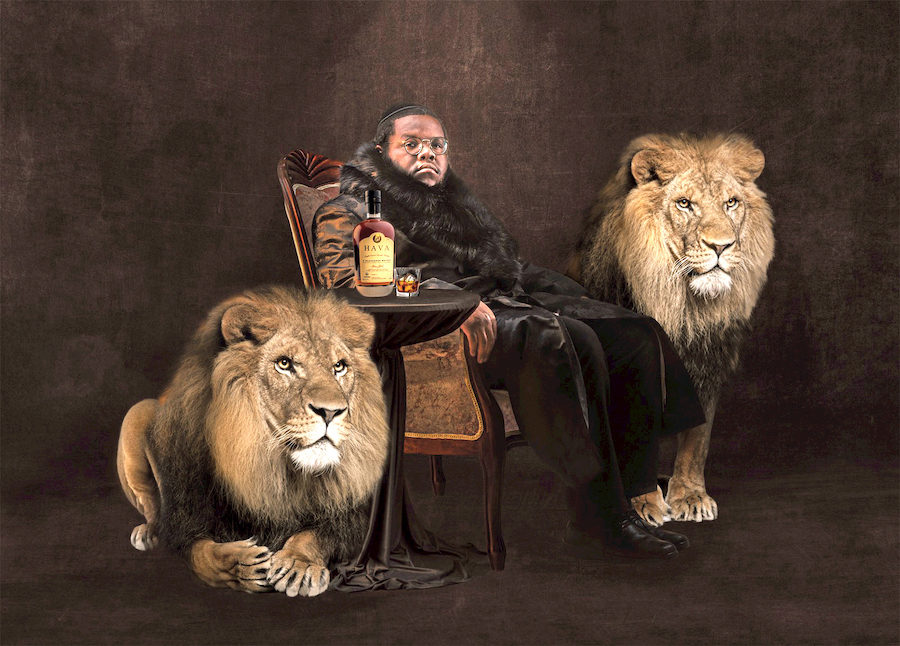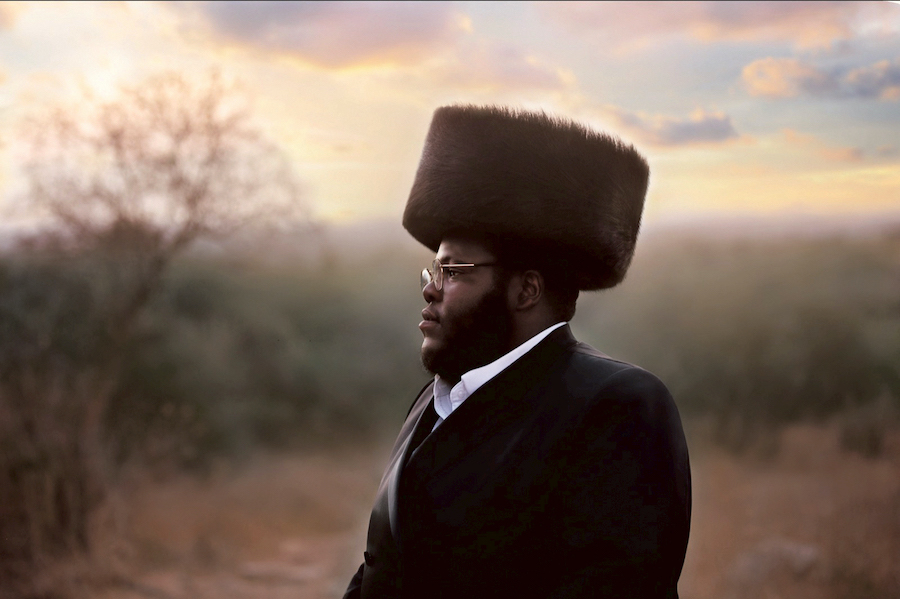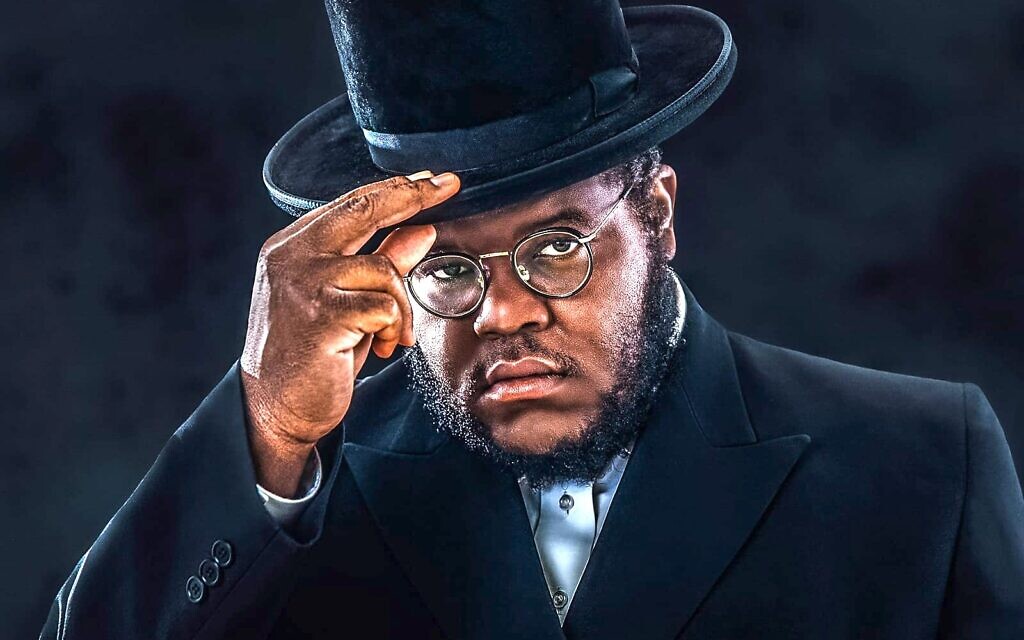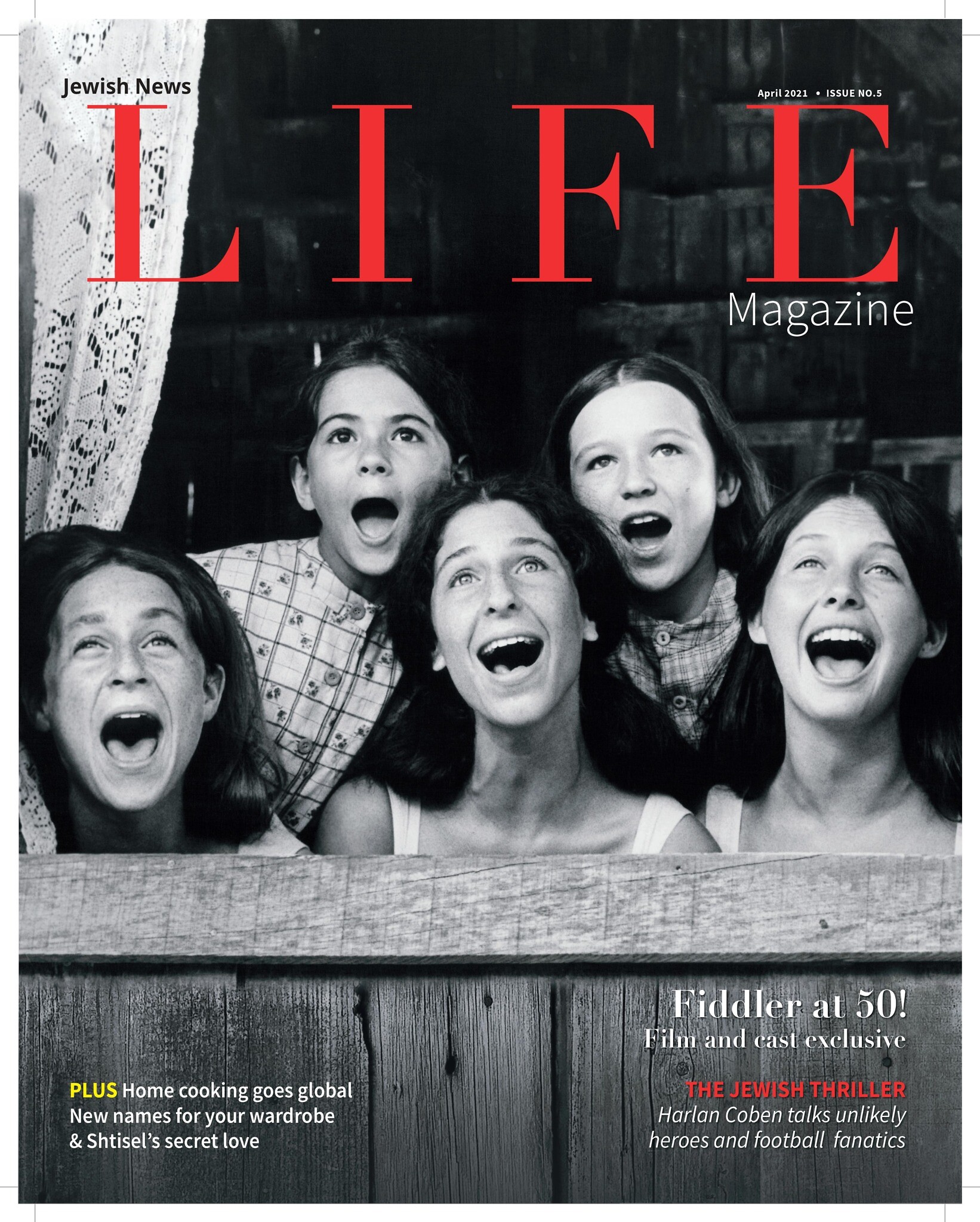Life Magazine – Nissim Black: ‘I’m turning what’s wrong into my greatness.’
The American rapper tells Alex Galbinski why he’s not bitter about facing racism in Israel and why he wants his music to heal
As a black former gangster rapper from the tough streets of Seattle, Nissim Black knows what it’s like to be doubted, but his focus now is speaking from the heart as a Chasidic and Breslov Jew.
Actually, he’s rapping his message and sharing it globally. We are speaking after the release of his single, The Hava Song, and he is quite clear in the lyrics about his purpose in life. “Dance homey, G-d’s only, G-d’s man how they know me…”
In the heady days when we were able to attend celebrations, chances are you would have heard at least one of his songs. But Black has had to slow down over the past year – not least because he caught Covid-19 last July, was hospitalised for six days and put on oxygen.
Get The Jewish News Daily Edition by email and never miss our top stories Free Sign Up
Although he usually spends a lot of time on the road, Black has now been making music at home, as well as bringing out his Hava brand of blackened whisky.
“Professionally, it’s killed a good amount of parnasseh (livelihood), but it’s also been beautiful because I spent more time around my family. I was here for all the holidays, which is the first time in maybe five years. Then, aside from that, you’re ready to pull your hair out.”

The Hava Song, a reimagining of Hava Nagilah, came about after a producer sent him beats via WhatsApp.
“I started writing to it, recorded it, grabbed my two little boys, and brought them into the studio for the first time. I had them singing the Hava Nagilah part.
“It’s probably the biggest traditional Jewish medley, so it was awesome to be able to do it, touch a few points on antisemitism. It’s just a song about pride and happiness, that’s really my sort of thing.”
His musical ideas vary with each song, but overall he says about his message that: “It’s okay to expect positive things and be happy. People are just sort of down and tend to listen to music that gives a soundtrack to what they’re already feeling. I want my music to heal wounds.”
Indeed, Black had his own wounds to heal. His parents were part of the early hip-hop scene in Seattle. They divorced when he was two and life growing up with his mum and stepfather was chaotic as they were both drug dealers.
“It was full of trafficking, people coming in and out of the house, and drug abuse,” he recalls.
Black was eight when the FBI raided his house and arrested his mother.
A year later, he was smoking weed and dealing it by 12. When he was 19, his mother – to whom he was very close – died of an overdose aged 37.
By then, Black – who was known at the time as Damian – had become interested in music. His influences were Jay Z, Biggie Smalls and, as time went on, “Kanye West became the man for me”.
It was full of trafficking, people coming in and out of the house, and drug abuse
Musically, he was going places. But after a friend shot a rival rapper who had been disrespecting Black, he shut himself away to reflect on his life and he prayed. And prayed.
Black had grown up as a Muslim, having been taken to the mosque by his devout grandfather (who ended up in prison) and then, after joining a youth group, converted to Christianity. But he only found what he was looking for within Judaism.

Black converted in 2012 at a Sephardic synagogue with his wife Adina, and they re-married in a traditional ceremony along with Adina’s sister and husband, Bradley (now Yosef), who is also his producer.
The two couples made aliyah in 2016, initially living in Mea She’arim, but some of Black’s children – he has six – faced racial prejudice so they moved to Beit Shemesh.
Comparing his children’s home life to his own, he says: “They also have a full house – it’s full of other Jews of every different type and colour and background.”
Black stands up for all the facets of his identity in his music as referenced by his lyrics: “We gon’ sing it out loud, Black Jewish and I’m proud.”
He shrugs when I ask whether he is bitter about the discrimination he has faced and says people staring at him was hard to adjust to.
“You know, I don’t think it’s always a bad thing in terms of what they may be thinking, that somebody where I came from decided to become Jewish.”

He believes there would be more understanding between the Jewish and the African-American communities if they knew more about each other’s struggles.
He says he knew nothing at all about the Holocaust until he was 20 and starting to learn about Judaism and, conversely, he has been asked about the black experience by men who are in other respects very learned.
His background gives him licence to reach out, not only with his music but also in his personal life. People, including some of the many yeshiva boys he and his wife host for meals, take their concerns to him because they say he will listen without prejudice.
“They tell me, ‘If we go to a rabbi, they’re going to judge us, but with you I’m comfortable, because I know you’re not going to judge me as you are open about where you came from.’”
Watch The Hava Song here:
Black says he takes the very things that have made his life difficult and makes them work for him.
“Everything that’s ‘wrong’ for me – I’ve had all these problems, I’m a ger (convert), I come from the worst of the worst, my parents sold drugs – I’m taking them, and I’m going to make them my greatness.”
Part of that greatness is his talent for music, something he sees as his calling. “I feel like the only way I can do this is if I know 100 percent that this is God’s mission for me,” he tells me. “I can’t go out and fight about a political candidate, but I can go and fight about God.”

Thank you for helping to make Jewish News the leading source of news and opinion for the UK Jewish community. Today we're asking for your invaluable help to continue putting our community first in everything we do.
For as little as £5 a month you can help sustain the vital work we do in celebrating and standing up for Jewish life in Britain.
Jewish News holds our community together and keeps us connected. Like a synagogue, it’s where people turn to feel part of something bigger. It also proudly shows the rest of Britain the vibrancy and rich culture of modern Jewish life.
You can make a quick and easy one-off or monthly contribution of £5, £10, £20 or any other sum you’re comfortable with.
100% of your donation will help us continue celebrating our community, in all its dynamic diversity...
Engaging
Being a community platform means so much more than producing a newspaper and website. One of our proudest roles is media partnering with our invaluable charities to amplify the outstanding work they do to help us all.
Celebrating
There’s no shortage of oys in the world but Jewish News takes every opportunity to celebrate the joys too, through projects like Night of Heroes, 40 Under 40 and other compelling countdowns that make the community kvell with pride.
Pioneering
In the first collaboration between media outlets from different faiths, Jewish News worked with British Muslim TV and Church Times to produce a list of young activists leading the way on interfaith understanding.
Campaigning
Royal Mail issued a stamp honouring Holocaust hero Sir Nicholas Winton after a Jewish News campaign attracted more than 100,000 backers. Jewish Newsalso produces special editions of the paper highlighting pressing issues including mental health and Holocaust remembrance.
Easy access
In an age when news is readily accessible, Jewish News provides high-quality content free online and offline, removing any financial barriers to connecting people.
Voice of our community to wider society
The Jewish News team regularly appears on TV, radio and on the pages of the national press to comment on stories about the Jewish community. Easy access to the paper on the streets of London also means Jewish News provides an invaluable window into the community for the country at large.
We hope you agree all this is worth preserving.
-
By Laurent Vaughan - Senior Associate (Bishop & Sewell Solicitors)
-
By Laurent Vaughan - Senior Associate (Bishop & Sewell Solicitors)
-
By Laurent Vaughan - Senior Associate (Bishop & Sewell Solicitors)
-
By Laurent Vaughan - Senior Associate (Bishop & Sewell Solicitors)























